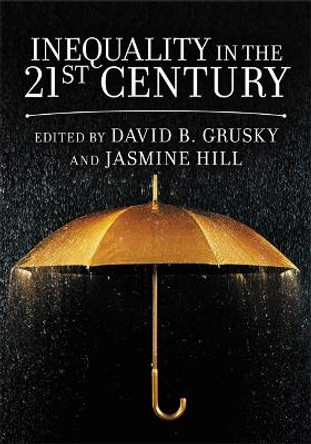Description
This volume brings together leading public intellectuals-Amartya Sen, Martha C. Nussbaum, Francois Bourguignon, William J. Wilson, Douglas S. Massey, and Martha A. Fineman-to take stock of current analytic understandings of poverty and inequality.
Contemporary research on inequality has largely relied on conceptual advances several decades old, even though the basic structure of global inequality is changing in fundamental ways. The reliance on conventional poverty indices, rights-based approaches to poverty reduction, and traditional modeling of social mobility has left scholars and policymakers poorly equipped to address modern challenges.
The contributors show how contemporary poverty is forged in neighborhoods, argue that discrimination in housing markets is a profound source of poverty, suggest that gender inequalities in the family and in the social evaluation of the caretaking role remain a hidden dimension of inequality, and develop the argument that contemporary inequality is best understood as an inequality in fundamental human capabilities. This book demonstrates in manifold ways how contemporary scholarship and policy must be recast to make sense of new and emerging forms of poverty and social exclusion.
About the Author
David B. Grusky is Professor of Sociology and incoming Director of the Program on Inequality at Stanford University. His recent books include Occupational Ghettos: The Worldwide Segregation of Women and Men (Stanford 2004) and Mobility and Inequality (Stanford 2005). Ravi Kanbur is T.H. Lee Professor of World Affairs, International Professor of Applied Economics and Management, and Professor of Economics at Cornell University.
Reviews
"This slim volume offers ample food for thought to scholars with a serious interest in social or economic inequality. The star contributors- economists, sociologists, political scientists, and philosophers-present concepts, theories, and proposals that will stimulate those outside as well as within their home disciplines. While avoiding the circular reasoning characteristic of the 1960's 'culture of poverty,' these accessible essays enlarge the concept of poverty-and, I hope, of poverty research and policy-by elaborating the idea that social justice requires measurable equality of capabilities or opportunities, and not merely of economic resources."-Robert M. Hauser, University of Wisconsin-Madison
"This impressive collection of essays brings together well-known economists, sociologists, and philosophers to discuss the pressing problems of inequality and poverty. Kanbur and Grusky recognize that these timely and difficult issues can only be dealt with by marshalling the intellectual power of our best minds, looking at poverty through the lens of multiple disciplines."-Joseph E. Stiglitz
"...I highly recommend this book. It is essential reading for anyone studying occupational segregation, and valuable for scholars in a range of fields including gender studies, work, social inequality, and comparative-historical sociology."--Canadian Journal of Sociology Online
Book Information
ISBN 9780804748421
Author David B. Grusky
Format Hardback
Page Count 200
Imprint Stanford University Press
Publisher Stanford University Press
Weight(grams) 404g





